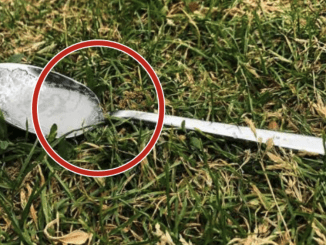Our relationship with our mothers is often the foundation for how we perceive ourselves and the world around us. A nurturing and supportive mother can help a child develop self-esteem, confidence, and emotional intelligence. However, a narcissistic mother can significantly disrupt this development, leading to emotional trauma and lifelong challenges. Narcissistic parents, especially mothers, can leave their children questioning their worth, constantly seeking approval, and struggling with self-esteem.
In this article, we will explore what narcissism looks like in a mother, how it impacts children, and how to recognize the signs of having a narcissistic mother.

What is a Narcissist?
Narcissism is a term often used to describe someone who appears overly self-absorbed. However, true narcissism, especially in its extreme form known as Narcissistic Personality Disorder (NPD), is more complex. It involves an inflated sense of self-importance, a constant need for admiration, and a lack of empathy for others.
People with NPD may appear confident, but underneath their facade, they have fragile self-esteem and are highly sensitive to criticism. They manipulate relationships to serve their own needs and often surround themselves with people who will affirm their sense of superiority. This behavior can lead to troubled relationships, both personal and professional, as well as a deep emotional void for those around them.
What Does a Narcissistic Mother Look Like?
A narcissistic mother can manifest in various ways, and her behavior often centers around manipulation, control, and emotional invalidation. One of the most damaging traits of a narcissistic mother is her ability to dismiss her child’s emotions and achievements. Instead of providing comfort or support, she may belittle or undermine her child’s feelings.
For example, if a child expresses sadness, a narcissistic mother may accuse them of being “too sensitive” or dismiss their emotions entirely. This constant invalidation can leave the child confused and unable to trust their own emotions, often leading them to question their self-worth.
Common Traits of a Narcissistic Mother
A narcissistic mother can leave a lasting mark on her children through several harmful behaviors:
- Emotional Manipulation: She will often play mind games, making her child feel guilty or ashamed for their feelings. This leaves the child constantly seeking her approval.
- Constant Comparison: Narcissistic mothers may frequently compare their children to others, saying things like, “Why can’t you be more like your sibling?” or “You’re not as good as your friend.”
- Control and Dependency: She will often attempt to control her child’s choices, from their hobbies to their friendships, ensuring they remain dependent on her approval for decisions.
- Perfectionism and Criticism: A narcissistic mother will never see her child as “good enough.” No matter how much the child achieves, she will find something to criticize, keeping her child in a constant state of trying to prove their worth.
The Damage to a Child’s Mental Health
The emotional toll of having a narcissistic mother can be profound. Many children of narcissistic mothers experience long-lasting mental health challenges, including anxiety, depression, and low self-esteem. Constantly being belittled or compared to others can make it difficult for children to see themselves as valuable individuals.

These children may struggle with relationships as adults, unsure of how to form healthy connections. They may feel unworthy of love and attention, repeating unhealthy patterns in romantic and professional relationships. Many develop perfectionism or people-pleasing tendencies, always striving to meet the unattainable standards set by their mother.
Common Things a Narcissistic Mother Might Say
Narcissistic mothers often express their manipulation and control through hurtful language. Some common phrases that children of narcissistic mothers hear include:
- “You’re too sensitive. Get over it.”
- “I do everything for you, and you never appreciate it.”
- “Why can’t you be more like your sibling?”
- “You’ll never be good enough.”
- “No one else could ever love you the way I do.”
- “You don’t know what you’re talking about.”
These statements create a cycle of guilt and shame, ensuring that the child remains emotionally dependent on their mother while feeling increasingly inadequate.
Sibling Rivalry and Competition
One of the more insidious effects of a narcissistic mother is the way she fosters sibling rivalry. By constantly comparing her children and favoring one over the other, she creates an environment of competition rather than support. The “golden child” may receive all the praise, while the other sibling is scapegoated and criticized. This dynamic can lead to fractured sibling relationships that persist into adulthood.

A Public and Private Persona
To the outside world, a narcissistic mother often presents herself as the perfect parent. She may be praised by friends and neighbors for her dedication and selflessness, creating a public persona that contrasts starkly with the emotional abuse happening behind closed doors. This duality leaves children feeling isolated and disbelieved, as outsiders cannot comprehend the emotional toll she inflicts.
Overcoming the Impact of a Narcissistic Mother
Recovering from the effects of a narcissistic mother can be a long and painful process. It often requires therapy and deep self-reflection to undo the damage done. One of the first steps in healing is recognizing that the mother’s behavior was not the child’s fault. Children of narcissistic mothers often carry the weight of guilt, believing they were never good enough. Realizing that the mother’s narcissism stems from her own unresolved issues, rather than any flaw in the child, is crucial.

Conclusion: Breaking Free from a Narcissistic Mother’s Grip
The impact of a narcissistic mother can ripple through every aspect of a child’s life, but it is possible to break free from this cycle of emotional abuse. By seeking professional help, learning to set boundaries, and building self-esteem, children of narcissistic mothers can heal from their past and move forward with a healthier sense of self-worth.
Healing takes time, but the freedom to define your own worth and live authentically is worth every step of the journey. You are enough, and you always were.


